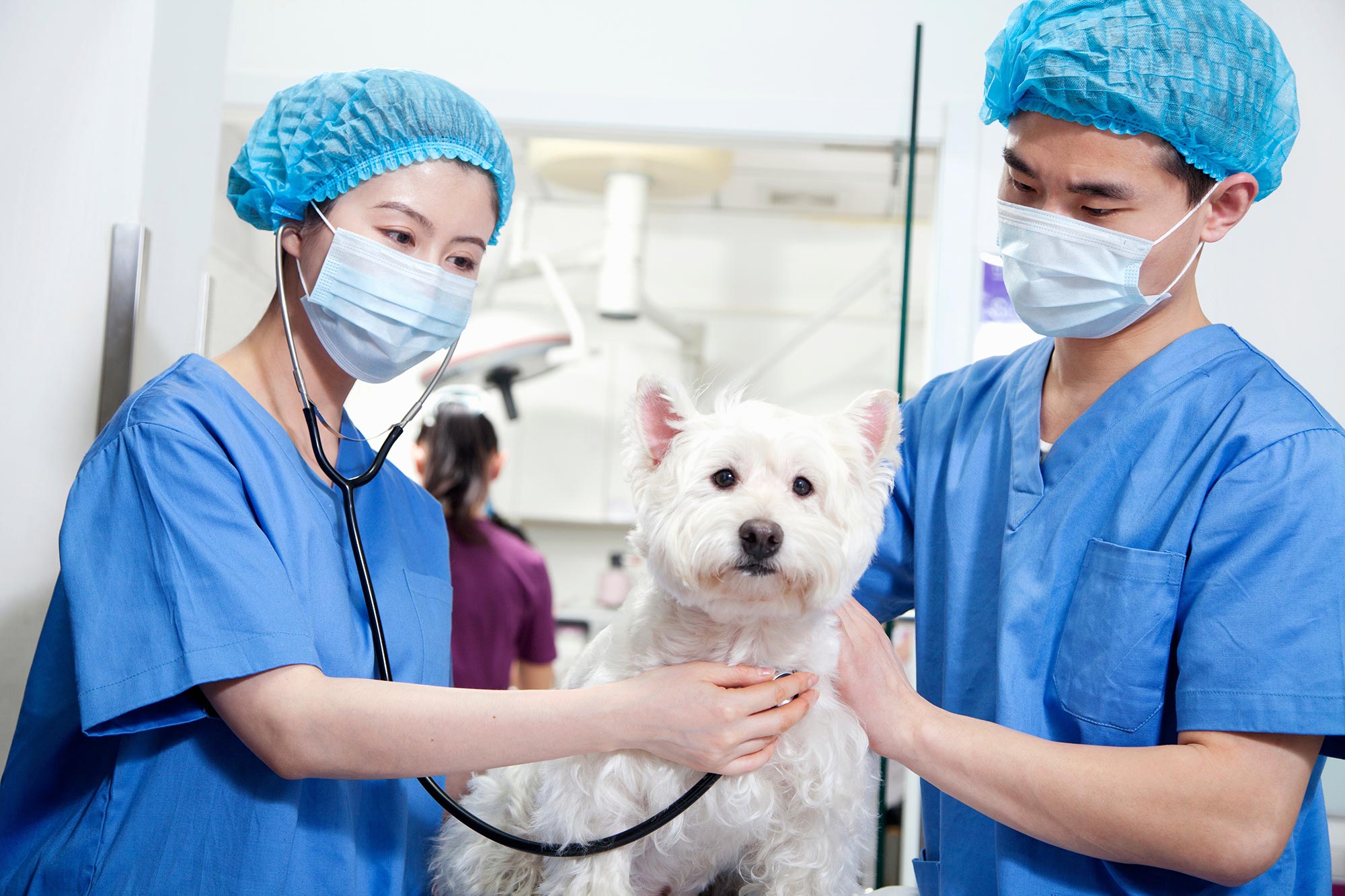
A study to be presented at the European Conference on Clinical Microbiology and Infectious Diseases suggests that healthy dogs and cats may be transmitting multidrug-resistant bacteria (MDROs) to their hospitalized owners, and that humans are exposing these organisms to disease. You may also infect your pets. This study highlights the potential for antibiotic-resistant bacteria to spread between pets and humans.
Multidrug-resistant bacteria can be transmitted between healthy dogs and cats and hospitalized owners.
Fortunately, we found only a small number of cases suggesting that pets are not a major cause of antibiotic-resistant infections in hospitalized patients.
Healthy dogs and cats may be passing on multidrug-resistant bacteria (MDROs; bacteria that resist treatment with multiple antibiotics) to their hospitalized owners, as well as humans, according to a new study published. may be transmitting these dangerous microbes to their pets. At this year’s European Conference on Clinical Microbiology and Infectious Diseases (ECCMID) in Copenhagen, Denmark (15-18 April).
The study of over 2,800 hospitalized patients and their companion animals was conducted by Dr. Carolin Hackmann and colleagues at Charité University Hospital Berlin, Germany.
“Our findings demonstrate that it is possible to share multidrug-resistant organisms between companion animals and their owners,” said Dr. Hackmann. “However, we were only able to identify a handful of cases, suggesting that having both cats and dogs is not an important risk factor for colonization with multidrug-resistant organisms in hospitalized patients.”
The role of pets as potential reservoirs of MDROs is of increasing concern worldwide. Antimicrobial resistance occurs when infection-causing microbes (bacteria, viruses, fungi, etc.) evolve to become resistant to drugs designed to kill them. Antibiotic-resistant infections are estimated to have killed about 1.3 million people worldwide in 2019, with an estimated 5 million deaths.[1]
In this case-control study, researchers sought to determine whether pets (ie, cats and dogs) were involved in infection of hospitalized patients with MDRO.
They identified the most common superbugs in hospitalized patients: methicillin-resistant Staphylococcus aureus (MRSA), vancomycin-resistant enterococci (VRE), third-generation cephalosporin-resistant enterobacteria (3GCRE), carbapenem-resistant enterobacteria. (CRE). Multiple antibiotics, including penicillins and cephalosporins.
Between June 2019 and September 2022, 2,891 patients (1,184 previously colonized or colonized patients at admission and 1,707 newly admitted as controls) were admitted to the Charité University Hospital, Berlin. patient), nasal and rectal swabs were obtained. their household.
Using gene sequencing,[{” attribute=””>species of bacteria in each sample, and the presence of drug-resistance genes. Whole genome sequencing was used to confirm the possible sharing of resistant bacteria.
Participants were also asked about well-known risk factors for MDROs (e.g., recent MDRO infections or use of antibiotics, recent hospital stays, presence of urinary or central venous catheters), as well as information about the number of pets in the household, the closeness of contact, and pet health.
Overall, 30% (871/2,891) of hospital patients tested positive for MDROs, and 70% (2,020/2,891) tested negative. The rate of dog ownership was 11% (93/871) and cat ownership 9% (80/871) in those who tested MDRO-positive, and 13% (267/2,020 and 253/2,020 respectively) in MDRO-negatives.
All 626 pet owners were asked to send throat and stool swab samples of their pets. Overall, 300 pet owners sent back samples from 400 pets. Of these samples, 15% (30/203) of dogs and 5% (9/197) of cats tested positive for at least one MDRO. In four cases, MDROs were phenotypically matching (MDROs were the same species and showed the same antibiotic resistance) between pets and their owners.
Whole genome sequencing confirmed that only one of the matching pairs was genetically identical in a dog and its owner. The matching pathogen was 3GCR Escherichia coli (common in the intestines of healthy people and animals).
“Although the level of sharing between hospital patients and their pets in our study is very low, carriers can shed bacteria into their environment for months, and they can be a source of infection for other more vulnerable people in the hospital such as those with a weak immune system and the very young or old,” says Dr. Hackmann.
This is an observational study and cannot prove that close contact with pets causes colonization with MDROs, but only suggest the possibility of co-carriage, while the direction of transfer is unclear. The authors point to several limitations, including a possible under-reporting of MDRO colonization in pets due to problems in taking swab samples, which was done by the pet owners themselves. Finally, the study results apply to the setting of hospital patients in an urban area and therefore may not be applicable to the general population or MDRO high-risk groups like livestock farmers.
Reference:
- “Global burden of bacterial antimicrobial resistance in 2019: a systematic analysis” by Antimicrobial Resistance Collaborators, 19 January 2022, The Lancet.
DOI: 10.1016/S0140-6736(21)02724-0
Meeting: European Society of Clinical Microbiology and Infectious Diseases (ECCMID) 2023
